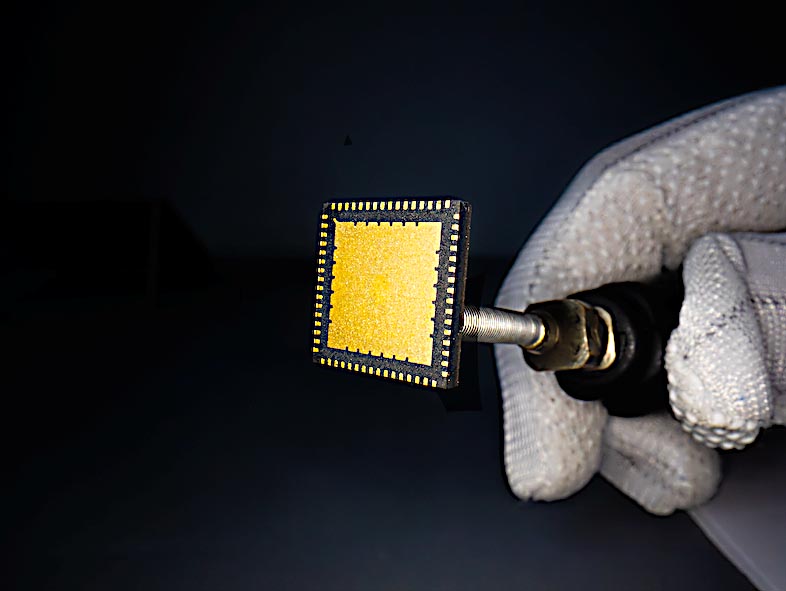Mindgrove launches India’s first indigenously designed commercial high-performance MCU chip

- The chip is designed for IoT devices and costs 30% lower than its competitors
- Mindgrove designed and sent out the chip for manufacturing within eight months – considerably faster than industry standards (2-3 years)
7th May, 2024: Mindgrove Technologies, a Peak XV Partners-backed fabless semiconductor startup, has launched India’s first commercial high-performance SoC (system on chip) named Secure IoT. The RISC-V-based chip will allow Indian Original Equipment Manufacturers (OEMs) to use an Indian SoC in their products and help reduce the cost of their feature-rich devices, without compromising on high-end features. The chip is estimated to cost 30 percent less than other chips in the similar segment.
Secure IoT is a high-performance microcontroller clocked at 700 MHz. It is the only Indian chip that is commercially available in this segment. Mindgrove’s chip is designed to provide programmability, flexibility, security and superior computing power for controlling applications on a wide range of connected smart devices. This chip – can control everything from wearables like smartwatches to smart city devices like connected electricity, water, and gas meters to connected home devices like smart locks, fans, speakers, as well as, as well as EV battery management systems and control systems, amongst others.

“The pandemic revealed the wide gap between high-end and low-end players in the embedded systems space, with the latter prioritizing cost and volume over the chip’s actual performance,” says Shashwath TR, CEO and C0-Founder of Mindgrove Technologies.
“Thus, we set out to design chips that target the middle market. ‘Right-sizing’ has been the key differentiating factor when it comes to Mindgrove, giving it an edge over others, with enhanced flexibility, adaptability, security and cost-efficiency coupled with a robust support system.”
In addition to selling the chip, Mindgrove offers design support to Indian brands to accelerate innovation and scale of production in India, which will be a significant step towards self-sufficiency and global positioning in the semiconductor and electronics space.
Talking about the market for these chips, Shashwath added, “India consumes over a billion chips a year and anywhere between 10 to 50 million of them can be replaced by Secure IoT. Further, there is widespread demand for microchips worldwide, and we expect global buyers to be excited about a new option from India,” he added.
The IITM Pravartak Technologies Foundation and IIT Madras Incubation Cell incubated start-up highlighted that the chip has had a successful MPW tape-out, the silicon industry term for prototyping, at the 28nm node, and that reference boards will be available for OEMs to try out in the coming weeks.
Secure IoT offers a wide range of features, such as a large number of I/Os, key security algorithms implemented as hardware accelerators, secure boot, and on-chip one-time programmable memory. The chip is intended to be used with bare metal code or any microcontroller RTOS (real-time operating system), thus opening up arenas like traffic control systems, autonomous vehicles, medical equipment, etc.




